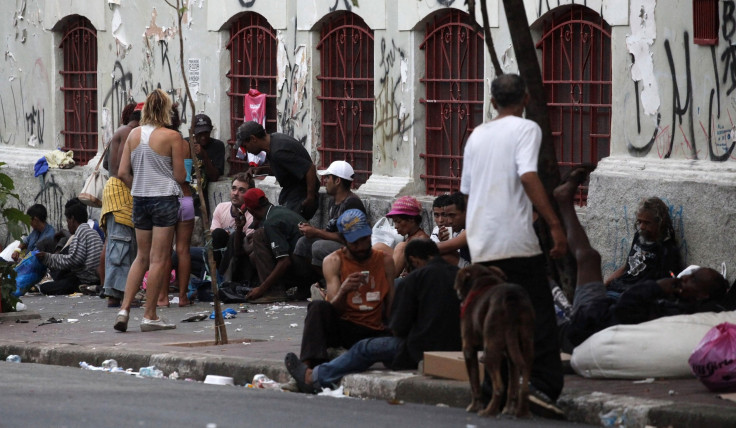Sao Paolo, Brazil, to Force Addicts Into Treatment

Brazil is in the middle of its own cocaine epidemic. According to the Federal University of Sao Paolo, Brazil is the largest consumer of cocaine and its derivative, crack. In fact, according to the same study, about 6 million people, or 3 percent of its adult population, have tried the drug. In an effort to reverse the tide of the epidemic, one state in Brazil is attempting what will likely be a controversial method: Sao Paolo, Brazil's most populous state, will be forcing addicts into treatment.
Addicts who resist treatment can be forcibly committed by a coalition of judges, lawyers and prosecutors, according to the Associated Press.
The plan was announced on Thursday and will go into effect this month. It is not the first time a state in Brazil has tried such a method. Since 2011, security forces have rounded up addicts and forced them into treatment. By December 5 of last year, 5,582 people had been seized by the government - 734 of them children, reports AP.
The program in Rio de Janeiro has been met with mixed reviews. A study conducted by the same university said that 47 percent of drug users would be open to treatment, which has been taken as a sign that it can work. "Now most of them understand our intention is to help, to give them a chance to leave the street and to connect with the public health network," Ethel Viera said.
Human rights groups, on the other hand, object to the forcible commitment of children, who are housed in a facility separate from the adults or returned to their parents. They also note that treatment against the will of a patient is ineffective; since they cannot be forced to stay in treatment, many leave within three days. The sweeps in Rio de Janeiro have also been described as violent.
However, it is generally agreed upon that something must be done. According to the New York Times, in Sao Paolo, groups of addicts roam the streets, consuming the drug in broad daylight - forming a miniature city known as "Cracolandia", or "Crackland". President Dilma Rousseff and her government are moving ahead with a $2 billion anti-crack progam, which will enhance efforts to combat the trafficking of cocaine into the country and will include awareness campaigns.



























